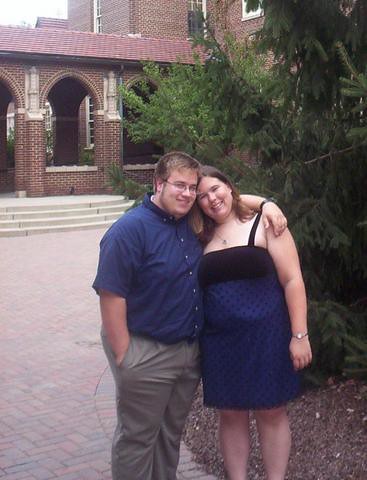Peace on Earth?
The Prince of Peace
Dec 22nd, 23rd
David Hively
I’ve heard a lot in the last few weeks about the various traditions that people have. The particular things that make this time of year special for them. I’ve heard stories about trips to see families, about going out to find that perfect tree. But I’ve also hear that there are several people in this congregation who collect nativity sets which they proudly display this time of year. Some people call them crèches. But they are these sets of figurines that are fashioned to represent all of the major players in the story of the birth of Jesus. You have seen these, right? There is one just to the left as you enter through the sliding doors in the back of the sanctuary. They make for these beautiful scenes, frozen in time where all is calm and all is bright. The faces are all looking down, peering at the newborn Jesus. Some are even kneeling out of reverence for this tiny king. Some of the sets even have angels sounding a trumpet to herald the arrival of the Prince of Peace. The scene is so idyllic, so serene, so full of – peace. But what about this baby Jesus? We call him the Prince of Peace, but I wonder just how much peace he brought into the lives of the people with whom he shares this scene.
Lets work our way in from the outside. The Magi. We know these guys by a lot of different names: Magi, Kings, Wise Men, Astrologers. And we put them in the scene with the shepherds and angels and little baby Jesus, but most biblical scholars agree that the magi didn’t make it to Jesus on Christmas night. They think that it might have taken them as long as two years to find Jesus. It isn’t a part of our text for today, but these guys had quite a trek on their hands. And as wearying as traveling can be in our own time, I’m not even sure that I can comprehend what all these guys went through to catch a glimpse of the boy Jesus. We show them riding camels, wearing fine clothing, and bringing expensive gifts. But would they have called Jesus the Prince of Peace? Had he made their lives any easier? If anything their quest was long, tiring, and dangerous – especially with so many valuables on hand.
Moving a little further in you find the shepherds. You have to feel for these guys too. They were basically homeless. They slept in the fields with the sheep. And probably not their own sheep either, someone else’s sheep. They had to do the hard, dirty part of tending the sheep. They were the lowest of the low, the bottom of the social ladder. They were held in such low regard that shepherds were not allowed to be called as witnesses in court cases – they were just too unreliable to be trusted. And it was these guys who were out in the field one quiet night only to have the heavens torn open and a host of angels come pouring through. It is no wonder the first thing that the angels have to say is – “Do not be afraid.” These lowly shepherds are the first ones to find out about Jesus’ birth. They can’t be witnesses in court and yet God makes them into the first witnesses of the coming of the Messiah. Then the shepherds abandon their flocks, their livelihoods to go out in search of the boy Jesus. Do you think that Jesus’ coming brought peace into the shepherd’s lives?
And what about Mary? She usually gets to be the closest. He face shows some blend of wonder and adoration. But things weren’t so easy for Mary either. She’s engaged, but ends up pregnant, and not even by the man to whom she’s engaged. She has conceived in a way that nobody before her or since has ever conceived. You have to wonder how many people took her seriously. Who really believed her?
And do you remember what she is told about this baby? If you have you Bibles flip open to Luke 2:34,35 (page in your pew Bibles). Simeon is an old man and it has been revealed to him that he will see the Messiah. When Mary and Joseph bring baby Jesus to him, look at what Simeon says, “This child is destined for the falling and rising of many in
Joseph is the character in the nativity that gets most of the attention in our Gospel text for today. We know that Joseph and Mary were engaged. But engagement worked differently in Jesus’ time than it does in our own. In our day the couple falls in love. According to tradition the young man asks the young woman’s father for her hand in marriage, and then they live happily ever after. But in Jesus time marriages were legally binding contracts and had a very large financial component to them. They also bore many marks of patriarchy that we would not tolerate today. In order to marry, the young man needed to pay a fee, a dowry, in order to be married. Now, sometimes a young man would express an interest in marrying a young lady, but not have enough money to pay the dowry. But to make sure that she would still be available to him when he was able to afford the dowry, he could make a sort of down payment – paying a portion of the dowry to claim the woman as his own. There would be a wedding and everything, but after the ceremony, the young lady went back home with her dad. From the description in our Gospel text for today, it seems that this is the arrangement that existed between Mary and Joseph. He had paid a part of the dowry, but not the whole thing. So, in the eyes of the law, they were engaged.
When Joseph finds out that Mary, his betrothed, has become pregnant and not by his own doing – he tries to do what is right under the Law. He plans to dissolve the contract. He could have her dragged to the town square and stoned for adultery, but instead he chooses a path of mercy and decides for a quiet divorce. But Joseph hears from God that he is to take Mary as his wife without regard to the Law or to the social customs of the day.
We talk about the baby Jesus and we call him the Prince of Peace. But one by one we have seen that the people that we most closely associate with Jesus’ birth had very little peace brought into it that night. There must be some other meaning when Isaiah identifies Jesus as the Prince of Peace.
The famous news man, Paul Harvey, tells the story about a family on Christmas Eve. This family had a tradition where the Mother and children would go to the Christmas Eve service, and the Father would stay home and read the paper. When the family returns home from church, they would all gather to open up their presents. The Father was not an evil man, but he just couldn’t believe in the childhood stories anymore of God coming as a baby in a manger. As the family left for church, he opened up the evening paper and began to read by the fireplace. Suddenly, he heard tapping on the window. It was a bird flying against the glass of his window trying to get out of the snow into the warmth of his home. The man had compassion on the bird, and he went outside, hoping to bring it in. As he approached the bird, the bird just flew against the window even harder. Pretty soon, the bird flew into the bushes below the window, half frozen, yet too afraid to be caught by this huge man. The more the man tried to reach for the bird, the more the bird flew frantically into the snow and thorns of the bushes. After a few minutes in the cold and seeing the bird continue to injure itself, the man yelled out in frustration, "Stupid bird, can’t you understand that I’m trying to help?" The man paused and thought, "If only you understood you wouldn’t fly away ... if only ... if only I could become a bird, and get you to understand.” And then off in the distance the man heard the church bells ringing, just as they had done at this time every year, announcing the beginning of Christmas, the day that we celebrate Jesus taking on frail human flesh and living as one of us.
Jesus comes to us in human form to show us a different kind of peace. It isn’t the greeting card or nativity set kind of peace – he’s offering something deeper, something transcendent. He doesn’t offer peace through the use of military might. He isn’t offering peace from coasting over the trials and tribulations of this life. What Jesus offers instead is the peace that comes from walking this road together. In times of hardship and times of abundance, when the rule of the land is an eye for an eye – God is with us. In times of violence or oppression, when people seek the third way – God is with us. As we reach out to heal the sick and the suffering and be a visible presence in our communities – God is with us. That is the peace that we celebrate. That is the peace that we announce. Jesus brings peace as he comforts the grieving widow. He brings peace when he waits with the children who are waiting for a parent to return from war. He brings peace when family factions sit down around the Christmas dinner table and share a meal together. The Emmanuel, the God with us – this is the Prince of Peace. The one who came to live among us, and now promises to be with us always.



1 comment:
thank you
Post a Comment